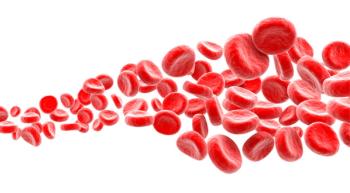
The FDA has approved the use of Gozellix, a PSMA-PET imaging agent, to help detect prostate cancer using gallium-68 gozetotide in PSMA-PET scans.

The FDA has approved the use of Gozellix, a PSMA-PET imaging agent, to help detect prostate cancer using gallium-68 gozetotide in PSMA-PET scans.

Gavreto is recommended as a first-line treatment for metastatic RET fusion-positive, metastatic non-small cell lung cancer, with potential severe side effects.

Dr. Sara M. Tolaney discussed HER2-positive breast cancer, highlighting key trials, evolving treatment strategies, and the potential for improved outcomes.

Dr. Debu Tripathy highlights the importance of staying informed on breast cancer advancements and how this empowers patients to make informed decisions.

Itovebi, approved for some patients with breast cancer, is the first PI3K inhibitor to display a survival benefit, according to Dr. Kevin Kalinsky.

Cancer runs in the family, and after I’d dealt with two breast cancers, my brother came down with lymphoma.

Findings on golidocitinib for patients with non-small cell lung cancer whose disease has progressed on anti-PD-1 therapy will be presented this month.

Elevation Oncology discontinues EO-3021 for gastric and gastroesophageal junction cancers after phase 1 trial shows insufficient efficacy.

In HER2-positive early breast cancer, Kadcyla shows sustained improvement in both invasive disease-free survival and overall survival versus Herceptin.

Gene expression testing helps determine chemotherapy needs for HR+ breast cancer, optimizing treatment and reducing unnecessary toxicity.

The FDA has approved Keytruda plus chemotherapy in HER2+ gastric or GEJ adenocarcinoma with PD-L1–positive expression, based on KEYNOTE-811 data.

As a breast cancer survivor, I feel it is incumbent upon me to give an accurate picture of cancer to others, particularly newly diagnosed patients.

Fruzaqla given in combination with sintilimab slowed progression in the second line for those with locally advanced or metastatic renal cell carcinoma.

The FDA has granted approval to an act of compassionate use treatment with the anti-cancer drug Namodenoson for a patient with pancreatic cancer.

Dr. Regina Hampton highlighted unmet needs in black women with breast cancer and details how genomic information can drive effective treatment options.

Darzalex and Revlimid maintenance resulted in superior outcomes versus Revlimid alone following autologous stem cell transplantation in multiple myeloma.

Genetic and genomic testing guide breast cancer risk assessment and treatment, as discussed by Dr. Mark Robson at the Miami Breast Cancer Summit.

Dr. Emre Yekedüz highlighted strategies that may improve patients' quality of life and mitigate treatment-related side effects in renal cell carcinoma.


After being diagnosed with colon cancer, I learned the life-changing lessons of self-love, stepping out of my comfort zone and embracing positive thinking.

Treatment with the T-cell immunotherapy Orca-T improved survival free of moderate-to-severe chronic graft-versus-host disease across leukemia subtypes.

The first patient has been dosed in a phase 2b trial evaluating the first-in-class agent Halneuron for those with neuropathic pain following chemotherapy.

Dr. Debu Tripathy discusses recent research on the use of circulating tumor DNA in metastatic breast cancer care.

Elahere shows consistent survival benefits in patients with folate receptor alpha-positive platinum-resistant ovarian cancer in the MIRASOL trial.

Bexobrutideg, a bioavailable agent, was granted orphan drug designation by the FDA for Waldenström macroglobulinemia, a type of non-Hodgkin's lymphoma.


Years after losing my brother to Hodgkin’s lymphoma, I learned something about how he felt facing a terminal diagnosis by studying an old Polaroid.

Dr. Yufei Liu discusses how updates to precision radiation therapy are reshaping colorectal cancer care.

The FDA has granted orphan drug designation to PEP-010 for pancreatic cancer, advancing its development as a potential novel treatment for the disease.

Among patients with renal cell carcinoma, those with larger tumors may yield the most benefit from SBRT compared with other ablative options.